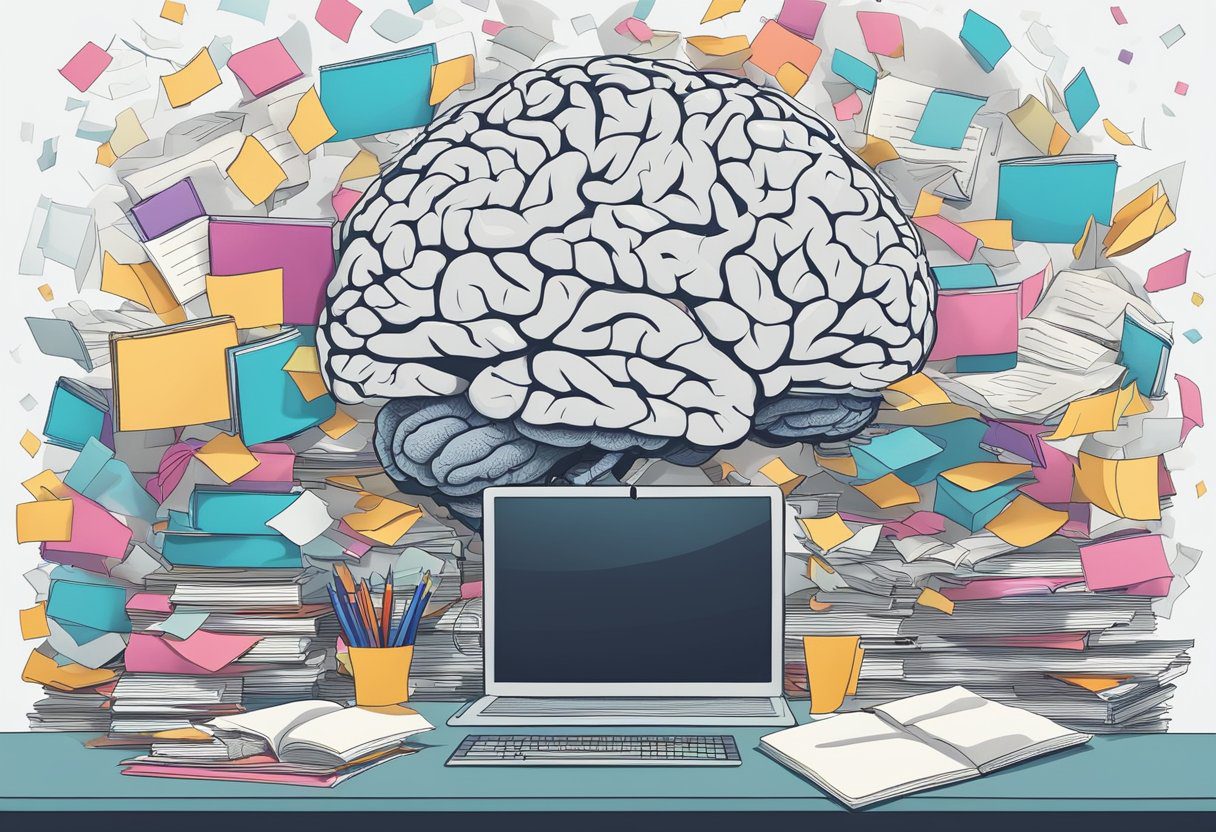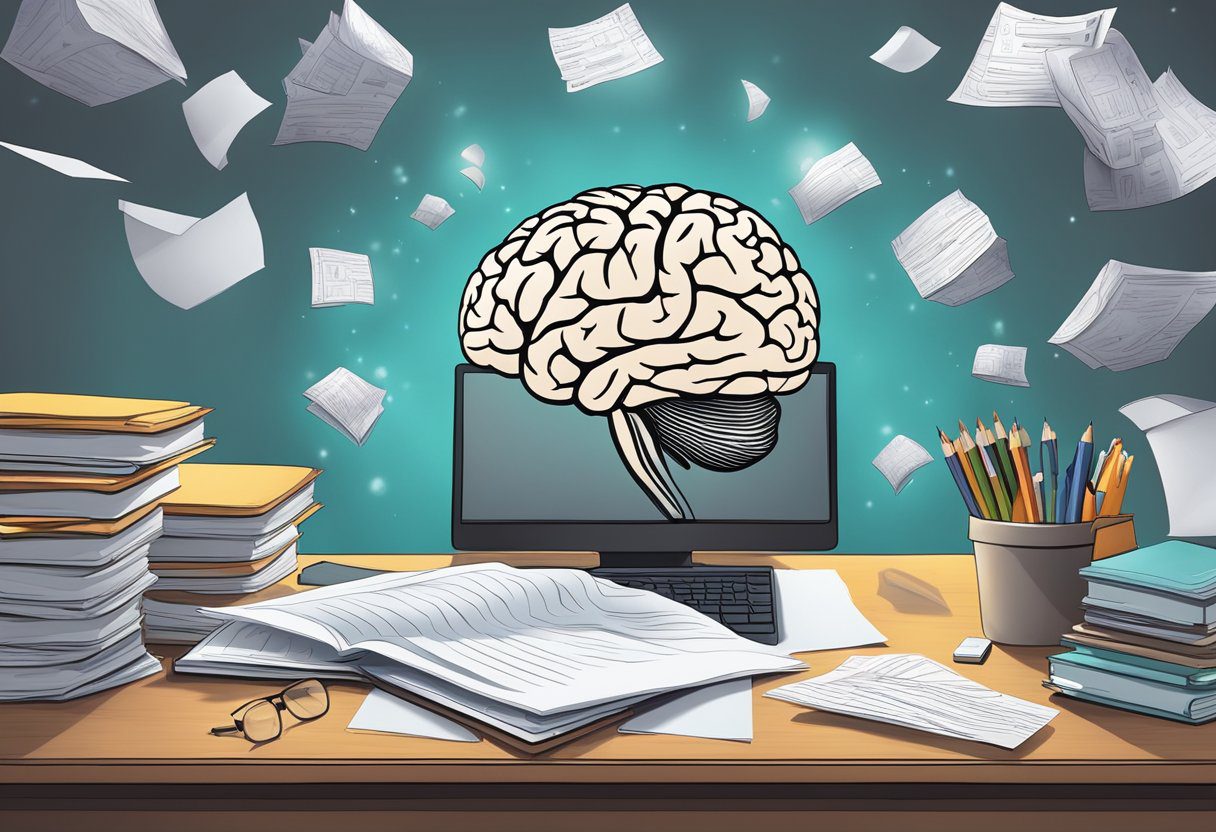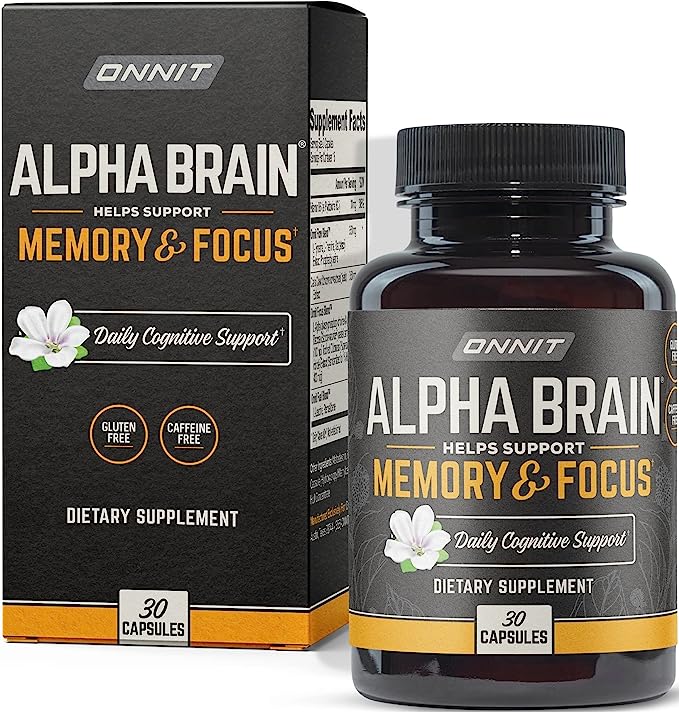Improving memory and reducing brain fog are crucial steps toward maintaining cognitive health and enhancing daily functioning.
Memory lapses and a lack of mental clarity can be frustrating experiences, often impacting work performance, academic learning, and social interactions.
While these occurrences might be common, they do not necessarily indicate irreversible decline. Instead, they can often be addressed through specific lifestyle adjustments aimed at enhancing brain function.

Identifying the underlying factors contributing to brain fog is a key step in devising an effective plan to combat it. Factors ranging from poor sleep and diet to stress and sedentary lifestyles can all play a role in mental cloudiness.
Once these elements are understood, practical strategies can be implemented to not only manage symptoms but also support long-term brain health. Techniques such as incorporating brain-healthy nutrients, engaging in regular physical exercise, and ensuring adequate rest are all pivotal in this endeavor.
Key Takeaways
- Lifestyle adjustments can enhance memory and clarity.
- Addressing underlying factors is instrumental in managing brain fog.
- Long-term brain health is supported through practical strategies.
Are Memory and Brain Fog Related?

Memory is the cognitive function that allows individuals to encode, store, and retrieve information. Cognitive impairment, which includes brain fog, is often characterized by a decrease in these abilities. Brain fog is not a medical condition itself but a symptom that indicates irregularities in cognition. Common cognitive symptoms of brain fog include:
- Difficulty in processing information
- Confusion while performing tasks that were once familiar
- Challenges in thinking clearly or efficiently
Those experiencing brain fog describe it as a mental fog where their thoughts feel clouded. This can lead to a feeling of disconnect from one’s surroundings or activities and can be frustrating for individuals as it affects their daily life.
Brain fog is linked to a variety of causes, some of which are:
- Chronic stress can tax the cognitive resources, making it difficult for the brain to function optimally.
- Hormonal changes, for instance, during menopause, pregnancy, or due to thyroid issues, have been associated with impaired cognitive functions.
- Depression, dehydration, poor diet, and certain medications used to treat anxiety and depression can contribute to brain fog.
- It can also be a side effect of other health conditions or infections that impact cognitive health.
To manage cognitive symptoms like mental fog, it is essential to identify the underlying problems. Doing so can enhance one’s ability to think and remember effectively by clearing the confusion and mental fog that obstructs cognitive processing.
Identifying the Causes

When seeking to improve memory and alleviate brain fog, comprehending its origins is crucial. Various factors ranging from lifestyle choices to medical conditions can obstruct cognitive clarity.
Lifestyle Factors
- Sleep: Adequate sleep is essential for cognitive function. A lack of sleep can lead to brain fog and memory problems.
- Physical Activity: Regular exercise enhances circulation, potentially reducing cognitive issues.
- Nutrition: Poor diet is linked to reduced cognitive function. Hydration and balanced nutrition are critical for brain health.
- Multitasking and Stress: Chronic stress and the mental fatigue from consistent multitasking can impair concentration and memory.
Health and Medical Conditions
- Aging and Dementia: Cognitive functions often decline with aging, and conditions like dementia can exacerbate this.
- Illness and Inflammation: Various illnesses, autoimmune conditions like lupus, multiple sclerosis, and fibromyalgia, or long Covid, can cause cognitive impairment due to inflammation.
- Hormonal Changes: Fluctuations, especially during pregnancy, can affect brain function.
- Chronic Conditions: Diabetes and other chronic conditions may give rise to cognitive challenges.
Mental Health Concerns
- Chronic Stress: Persistent stress can lead to depression and anxiety, impairing the ability to focus and causing mental fatigue.
- Mental Fatigue: Overwork and the constant demands on attention can contribute to difficulty focusing.
- Chronic Pain and Fatigue: Disorders like chronic fatigue syndrome can be detrimental to cognitive ability.
Medication and Substance Use
- Medications: Certain drugs, including antihistamines or medications for anxiety and depression, may induce memory issues.
- Alcohol and Caffeine: Overuse of alcohol or caffeine can affect sleep patterns and hydration, leading to brain fog.
Practical Strategies to Improve Memory

Improving memory goes beyond simple tricks; it requires a dedicated approach to revamping lifestyle habits and incorporating specific techniques aimed at enhancing cognitive performance. Addressing memory problems involves engaging in cognitive exercises, maintaining physical activity, adopting mindfulness practices, and optimizing sleep quality.
Cognitive Exercises
Cognitive exercises are crucial for boosting processing speed and venturing beyond forgetfulness. Engaging in puzzles and learning new skills are effective strategies that challenge the brain and enhance short-term memory.
One can start with crosswords or jigsaw puzzles and gradually move up to complex brain teasers or learning a new language or a musical instrument. Research has connected listening to music with improved cognitive performance; one might consider incorporating music sessions into their daily routine.
Physical Activity Recommendations
Physical activity has been widely recognized as a powerful tool for improving memory. A consistent schedule including walking or aerobic exercise can significantly impact cognitive health by increasing blood flow to the brain.
For a more holistic approach, yoga is recommended as it combines physical postures with breathing techniques, potentially reducing stress. An active lifestyle supports better memory retention and has been linked to lower risks of cognitive decline.
Mindfulness and Mental Wellness
Mindfulness and mental wellness are integral to combating memory challenges. Practices like meditation provide mental breaks, thereby reducing stress levels and improving memory and attention span.
Daily meditation—even for short periods—can help one remain centered and mentally sharp. Furthermore, integrating mindfulness techniques throughout the day encourages present-moment awareness, which is beneficial for cognitive performance.
Sleep Optimization
Sleep is paramount when addressing sleep deprivation or insomnia, which can severely impact memory. Establishing a consistent sleep routine and making the sleep environment conducive to rest can drastically improve both short-term memory and overall cognitive health.
Adults should aim for 7-9 hours of quality sleep per night to prevent the adverse effects of sleep loss on memory and cognitive function.
Managing Brain Fog

Effective management of brain fog involves a multifaceted approach tailored to individual needs. Key areas of focus include lifestyle adjustments, techniques to bolster cognitive functions, and, when necessary, medical interventions.
Lifestyle Modifications
Sufficient Hydration: Staying adequately hydrated is crucial, as dehydration can exacerbate brain fog. It’s recommended to drink enough water throughout the day, particularly if one is experiencing symptoms of mental fatigue.
Balanced Nutrition: Consuming a nutritious diet supports brain health. Avoiding large meals that can lead to post-meal lethargy is also beneficial. Instead, individuals may opt for smaller, frequent meals rich in vitamins and minerals to sustain energy levels.
Regulated Caffeine Intake: While caffeine can enhance alertness, one should be cautious not to overindulge, as this can affect sleep quality and lead to increased fatigue.
Improving Cognitive Functioning
Mental Stimulation: Engaging in activities that challenge the brain, such as puzzles or learning new skills, can improve cognitive functioning. Regular mental stimulation helps maintain memory and sharpens thinking.
Physical Exercise: Regular physical activity can boost cognition and reduce symptoms of brain fog. Exercise promotes blood flow, which in turn enhances brain function and reduces cognitive issues.
Medical Consultation and Treatment
Recognizing Health Conditions: If lifestyle adjustments and cognitive exercises do not alleviate brain fog, it may be an indicator of underlying health conditions or the side effects of medication. Conditions such as dementia, menopause, or trauma can contribute to cognitive symptoms and may require a healthcare provider’s attention.
Visiting a Doctor: One should consult a doctor to rule out or address illnesses and infections. A medical professional can also adjust any existing medication that might contribute to brain fog or prescribe treatment for specific cognitive issues.
Supporting Brain Health Long-Term

Maintaining brain health is crucial for enhancing memory and alleviating brain fog. This involves adopting a series of lifestyle changes aimed at nurturing both physical and mental well-being, which in turn supports cognitive functions.
Regular Exercise Regime
Exercise is a cornerstone of brain health. Engaging in regular physical activity, especially aerobic exercise, stimulates the release of chemicals in the brain, including dopamine, which enhances memory and growth of new brain cells. Adults should aim for at least 150 minutes of moderate-intensity or 75 minutes of vigorous-intensity aerobic physical activity per week, alongside muscle-strengthening activities on two or more days.
Mental Health Care
Managing stress is another key aspect of supporting long-term brain health. Chronic stress can lead to anxiety and depression, impeding cognitive functions. Techniques such as mindfulness and meditation can mitigate stress and support mental health. Moreover, engaging in social activities and spending time in nature are known to have a positive impact on reducing stress and promoting a healthy brain.
Healthy Lifestyle Choices
Nutrition and hydration play vital roles in cognitive health. A diet rich in omega-3 fatty acids, antioxidants, and vitamins, paired with adequate hydration, can improve brain function and memory. Incorporating activities like listening to music has been shown to enhance cognitive performance and mood. Making informed lifestyle changes that include sufficient sleep, avoiding harmful substances, and seeking regular medical advice are crucial to long-term brain health.
Frequently Asked Questions

This section provides information on frequently asked questions regarding memory enhancement and brain fog relief, offering practical solutions and evidence-based remedies.
What can I do to instantly clear brain fog?
One may find immediate relief from brain fog by engaging in short bursts of physical activity or practicing deep-breathing exercises which can increase oxygen flow to the brain.
What are some effective natural remedies for alleviating brain fog?
Natural remedies such as adequate hydration, healthy diet choices including fruits, vegetables, and whole grains, and consistent sleep patterns can be effective in alleviating brain fog symptoms.
Which vitamins are known to help with brain fog?
Vitamins known to help with brain fog include B vitamins for energy metabolism, Vitamin D for mood regulation, and omega-3 fatty acids which are crucial for maintaining healthy brain function.
What underlying causes contribute to brain fog and how can they be addressed?
Underlying causes of brain fog may include stress, hormonal changes, or lack of sleep. Addressing these can involve stress management techniques, checking hormonal levels with a healthcare provider, and establishing a consistent, high-quality sleep schedule.
How can one improve mental clarity and focus effectively?
Improving mental clarity and focus can be achieved through regular mental exercises like puzzles, mindfulness meditation, and by breaking up large tasks into smaller, more manageable steps.
What strategies help to prevent forgetfulness and stop brain fog?
Strategies to prevent forgetfulness and stop brain fog include setting up reminders, keeping a well-organized calendar, and using lists along with routine memory training practices and physical exercise to enhance mental performance.
